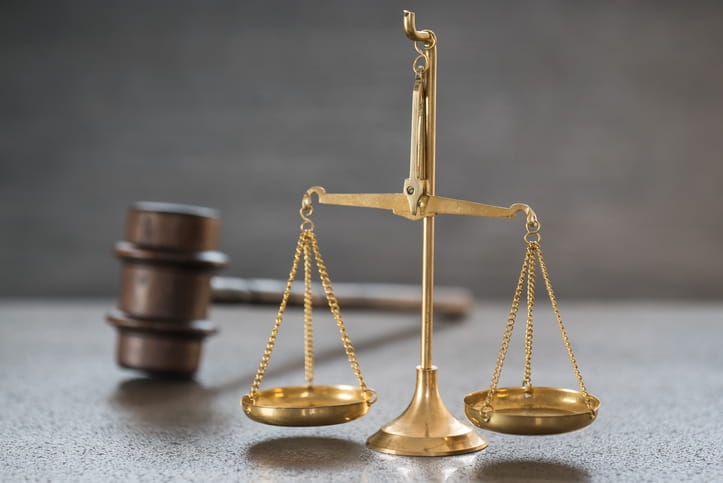How To File a Wrongful Death Lawsuit

There is nothing more difficult than losing a loved one. When their death is the result of someone else’s negligence, the pain can be tenfold. Colorado’s governing body is committed to protecting all victims, including the surviving loved ones of a person, through the state’s Wrongful Death Act.
Surviving family members can file a Colorado wrongful death lawsuit to hold responsible parties accountable for the negligence that led to their loved one’s death.
If the devastation of a wrongful death has touched your family, there are resources you can turn to. At the law offices of Bachus & Schanker, our legal team understands the complexities of wrongful deaths along with the emotional toll they can take on a family. Our Elite Litigation Group is a specialized team of attorneys who understand the complexities of wrongful deaths and can offer legal options and resources to help you through this challenging time.
When you reach out to our team, you’ll also have the support of our Victim’s Advocacy team. This unique team specializes in working with individuals who have suffered a traumatic incident, including the wrongful death of a loved one.
Learn more about how our Victims Advocates team, along with our Elite Litigation Group, can help you during what is undoubtedly one of the most difficult experiences anyone can go through.
Contact us now to schedule a free consultation with our wrongful death attorneys and get a better understanding of your legal rights and options as you navigate the road to healing.
What is a wrongful death?
A wrongful death is a legal action a surviving family member of a wrongfully killed individual can take against the person or entity that caused the death. The standard for bringing a wrongful death claim is whether or not the individual could have filed a personal injury claim if they had survived the accident.
A wrongful death occurs when an individual or an entity’s action causes someone to lose their life. Under Colorado law, a wrongful death is when an individual loses their life because of “a wrongful act, neglect, or default of another” caused by a person or entity.
All states have some variation of a wrongful death statute that allows the surviving family members to take legal action against parties they deem responsible.
How long do I have to file a wrongful death lawsuit in Colorado?
In Colorado, the guidelines for filing a wrongful death claim, including who can file a claim, the statute of limitations, and what damages can be claimed, are defined in Colorado’s revised statute 13-21-201.
Colorado law allows surviving family members two years to file a wrongful death lawsuit. Surviving family members will be barred from recovery if a claim is not filed within two years.
Colorado further breaks down the statute of limitation into first-year and second-year time frames. The surviving family member’s relationship with the decedent can determine when they can file.
In the first year of a victim’s death, only the surviving spouse of the decedent can file a claim. Under the written election of a surviving spouse, another heir of the decedent can also file in the first year. If there is no surviving spouse, the heirs or the designated beneficiaries can bring a claim forward.
In the second year after the wrongful death, the following individuals may file a wrongful death claim:
- The decedent’s spouse
- The decedent’s heirs
- Spouse and heirs of the decedent
- The designated beneficiary of the decedent
If there is no surviving spouse or surviving children, then the decedent’s parents can also file a claim.
What needs to be proven to win a wrongful death lawsuit?
The four elements of a wrongful death lawsuit are outlined in the Colorado Wrongful Death Act, C.R.S. 13-21-201 – 12-21-204. Under the statute, these elements must exist for a wrongful death lawsuit to be successful.
- Negligence: The legal concept of negligence describes a failure to act with ordinary and reasonable care. A defendant’s intentional conduct to purposefully cause harm to another person can also satisfy the element of negligence. For example, if a criminal has an intent to hurt or kill another person, that action is viewed as intentional conduct. It’s important to note that a wrongful death lawsuit is a civil action against a defendant. If your loved one passed because of someone’s criminal actions, a prosecutor may also bring criminal charges against a defendant.
- The death of a person: Wrongful death claims are the legal action that can be applied when an individual dies because of another individual’s actions
- Causation: Causation is a legal concept that connects an individual’s death to the negligent actions of a person or entity. Essentially, it’s the defendant’s actions that caused the death to happen. The intent of the negligent party does not matter when proving causation. Even if a defendant did not intend to cause harm or death, they could still be held liable for doing so.
- Damages: Damages refer to the losses sustained because of a wrongful death. The surviving family members of the decedent must show they’ve suffered substantial losses because of their loved ones passing.
How can a wrongful death attorney help?
Wrongful death attorneys can provide insight into your case, litigate for the damages you are entitled to, identify liable parties, and much more. When you work with the team at Bachus & Schanker, you can look forward to the following legal guidance:
Review the facts of our case
Like many families, you may be unsure if you have a strong enough case to bring forward a wrongful death claim. At Bachus & Schanker, we will analyze the facts of your case to help you determine your best options moving forward.
When you schedule a free case consultation with our team, an attorney will review the facts of your case, establish liability, determine the damage you may be able to pursue, and much more.
Determine liable parties
The circumstances of a wrongful death case are never cut and dry. Each case is unique, and the circumstances of your claim could result in more than just one person being liable for your loved one’s death.
When you work with a wrongful death attorney, you’ll have the guidance of a legal representative who thoroughly understands the state’s wrongful death laws. Our wrongful death attorneys will thoroughly investigate your case to determine who could be held liable. Depending on the circumstances of your case, there may be more than just one entity that could be held responsible for your loved one’s passing.
Prove negligence
The burden of proof in a wrongful death lawsuit in Colorado is a preponderance of the evidence. This means you must prove that your case is more likely than not. Wrongful death claims are built on the concept of negligence. Unfortunately, in some cases, negligence can be challenging to prove.
A claimant must show a defendant had a duty to keep your loved one safe. If the defendant failed in their duty to keep your loved one safe, this can satisfy the second element of negligence: the violation or a breach of duty.
When you work with an experienced wrongful death attorney, you’ll have a legal expert who will know how to establish negligence, collect pertinent evidence to prove that negligence occurred, and defend against any counterclaims a defendant makes against your lawsuit.
Determine damages
Every wrongful death lawsuit case is different, and as such, all families will experience different types of loss and suffering following their loved one’s passing. An experienced wrongful death attorney will examine the circumstances of your case to determine what damages can apply.
Colorado allows surviving families to collect economic, non-economic, and exemplary damages in a wrongful death claim.
Economic damages refer to the calculable and often tangible losses a family suffers. This includes losses like:
- Medical bills, treatment costs, hospital bills, and other expenses that resulted from the medical care your loved one received before their passing
- Funeral and burial costs
- Lost wages the person would have earned if they were still alive
- Other calculable losses
Non-economic damages refer to the difficult-to-calculate losses a surviving family member sustains. Colorado court uses a specialized formula to determine a claimant’s non-economic losses. Common types of losses include the following:
- Pain and suffering
- Loss of companionship
- Loss of consortium
- Emotional distress
- Mental anguish
Although rare, a claimant may also seek exemplary damages. Exemplary damages operate much like punitive damages in that they are designed to punish a defendant for their actions. If a defendant acted with fraud, malice, or willful and wanton misconduct, a claimant may be able to pursue exemplary damages.
You can learn more about the types of damages a claimant can pursue in a wrongful death claim caused by negligence in Colorado Revised Statute 13-21-203.
How much does a wrongful death attorney cost?

All wrongful death lawsuits are unique, and as such, the cost of working with a wrongful death attorney can differ from case to case. With most wrongful death attorneys, the standard cost of retaining legal guidance is done through contingency fees. This means the attorney won’t collect compensation until they win your case. Other common fee structures include hourly rates and flat fees.
When you schedule a free case consultation with the team at Bachus & Schanker, our attorneys will evaluate your case to determine how our services can best meet your needs. With the assistance of the Elite Litigation Group and our Victim’s Advocates team, you’ll have comprehensive legal support, enabling you to hold liable parties financially responsible to the fullest extent of the law.
Schedule your free case consultation today to learn more about how to file a wrongful death lawsuit and how our team can help you.
